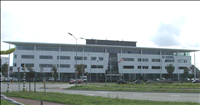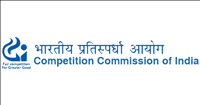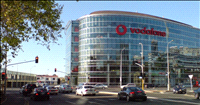UK researchers turn to crowdfunding to research cancers linked to EBV
26 Nov 2014
A team from the University of Birmingham is looking to a boost to its research into a treatment for cancers linked to Epstein-Barr Virus (EBV) through a pioneering crowd-funding scheme.
Cancer Research UK (CRUK) has taken an unprecedented step and opened up the funding hopes of three research projects to the power of the crowd, one of which is based at the University of Birmingham.
Whether it's a band's latest album, a 3D-printing pen or even a scientist's next experiment, crowdfunding is fast-becoming a "go-to" way of getting new ideas off the ground.
With the aim of getting such progressive research off the ground and delivering benefits to patients as quickly as possible, innovative sources of funding are required.
Through the online crowdfunding platform Indiegogo, the public will be able to support the team to take a key step towards finding an effective treatment.
Around 9 in 10 people are carriers of the Epstein-Barr Virus (EBV). The vast majority of us experience no problems as a result, but in some cases the virus can show a darker side.
EBV causes an estimated 200,000 cases of cancer across the world each year. For example, a cancer of the nose and throat, nasopharyngeal carcinoma, is one of the commonest cancers in men in large parts of South East Asia.
Led by Drs Neil Steven, Graham Taylor and Professor Alan Rickinson from the University of Birmingham, this team is working on a vaccine, which it hopes will be able to treat these EBV-linked cancers by boosting the immune response.
Dr Steven explains, ''We've already made some significant progress along this road towards treatment, and have an early stage clinical trial of our vaccine already established. We know the vaccine can direct immunity to recognise the cancer cells. We now need to use some really advanced technology to read the signals in the cancers themselves.''
''We will ask what is it that prevents immunity actually destroying the cancers. With the data, we may be able to combine the vaccine that directs and arms immune cells with other drugs that breach the cancers' defences against immune cells.''
''This is going to provide us with a huge amount of genetic data and we would benefit immensely from having in the lab to help us accurately read all of it.''
This trial is focused on Nasopharyngeal Cancer (NPC) which occurs in the head and neck and is the most common form of EBV cancer. Indeed, in large parts of South East Asia, NPC is one of the commonest cancers in men, causing significant misery and mortality.
However, the results also have the potential to benefit those with other EBV-related cancers. This includes most Burkitt's lymphoma, a significant proportion of Hodgkin's lymphoma and almost 10 per cent of stomach cancers.
The need for the new technology has stemmed from the evolving nature of the research project which is being trialled in Birmingham, alongside a parallel trial in Hong Kong.
Money provided through the crowdfunding scheme will help researchers to answer some of the emerging questions from the research, without having a lengthy wait for funding through more traditional sources.
The team has been set a funding target of £40,000 to reach by 11 December.






























